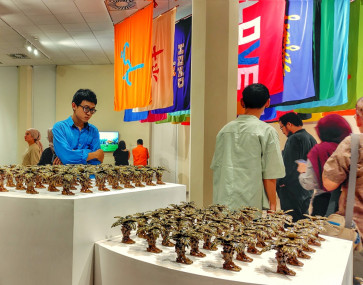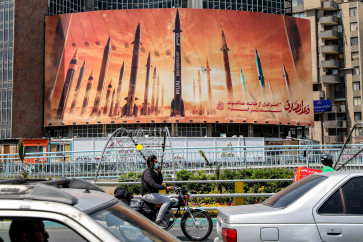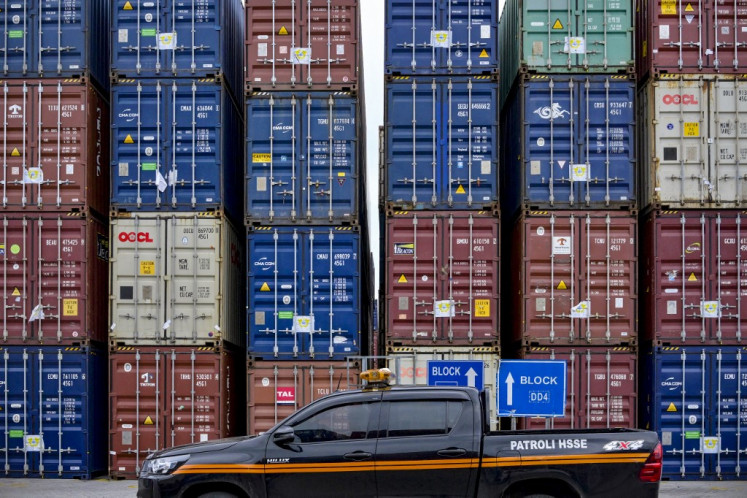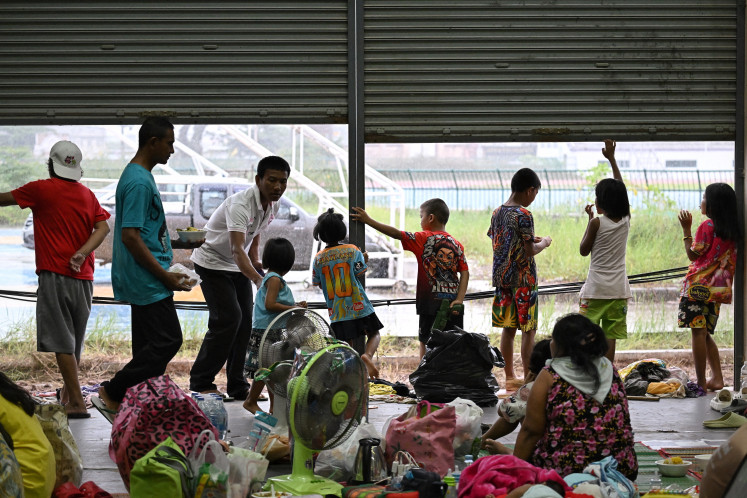Popular Reads
Top Results
Can't find what you're looking for?
View all search resultsPopular Reads
Top Results
Can't find what you're looking for?
View all search resultsIndonesia and environmental sustainability: Walking the talk?
At a national workshop on Indonesiaâs moratorium hosted by the United Nations earlier this month, noted Indonesian ecologist Sonya Dewi likened the moratorium to a durian
Change text size
Gift Premium Articles
to Anyone
A
t a national workshop on Indonesia's moratorium hosted by the United Nations earlier this month, noted Indonesian ecologist Sonya Dewi likened the moratorium to a durian. She spoke of its polarizing effect. People either love it or hate it. While at first glance, it may appear difficult and prickly, when broken apart, it can yield a nutritious and beneficial sustenance.
Similarly, other participants noted that, in both Indonesian and global discussions on forestry and broader resource management, people often speak of 'low hanging fruit' or 'quick wins'. This refers to making short-term achievements that can maintain the momentum needed to institute long-term reforms necessary to achieve sustainability. Without a doubt, temporary gains in a positive direction are important.
The durian alone cannot provide for our sustenance. It neither covers all nutritional needs and each of us has preferences for or against it. Equally, there is no silver bullet that can please all stakeholders and address ' in one fell swoop ' the dynamism and complexities of balancing economic growth and environmental sustainability with social protection and equity.
In Indonesia's case the equation is proposed as a 7/41 balance (7 percent growth and 41 percent reduction in greenhouse gas emissions).
During the same workshop, I encouraged panelists and participants alike to be candid in support of a shared commitment toward a more equitable, prosperous and green Indonesia. I emphasize this again because achievement of 'low hanging fruit' and 'quick wins,' while important, can distract from the longer and often arduous road towards realizing a better Indonesia, and a better world.
Reaching resolution and compromise acceptable to a myriad of sectors takes time, hard work and openness to accommodate other perspectives. We may all generally agree that we want progress or improvement, but we may not all agree on what that means, or the process through to arrive at 'better'.
In the past two years, Indonesia has made tremendous progress in establishing a process to structure these discussions and arrive at a meaningful, shared solution. The value of the Indonesian process and its relevance to international negotiations is reflected by the country's simultaneous leadership of the same on a global front, through President Susilo Bambang Yudhoyono's position as co-chair of the UN High Level Panel on the Post-2015 Development Agenda.
Of great importance is that as these critical national and global negotiations take place, development gains continue to be made and resource exploitation does not happen at a pace that makes any possibility for sustainability a figment of the past.
President Yudhoyono's extension of the moratorium for two more years affords Indonesia and, indeed, the global community, both the time and the momentum to fundamentally shift, together, how we operate and allocate natural resources in a more sustainable and equitable manner.
At the same workshop, Dr. Kuntoro Mangkusubroto, head of the Presidential Work Unit on Monitoring and Controlling of Development (UKP4) emphasized the need for a paradigm shift that focuses to continually strengthen cross-sector engagement in ministries and between various stakeholders. Chair of the Indonesian Climate Change Council, Rachmat Witoelar, underpinned the importance of clarity of data to support evidenced-based policy making. Environment Minister Balthazar Kambuaya noted the important role of the UN in aligning global environmental and sustainability goals to the visionary but challenging ambitions set forth by President Yudhoyono.
All three of these components are foundations for strengthening and structuring both the discussions and the action needed to define a common agenda and support its realization.
As highlighted by Pavan Sukhdev, goodwill ambassador for the UN Environment Program, more sustainable development pathways need not be solely reliant on resource depletion, but can produce better economic gains with a focus on enhanced productivity.
This is not merely wishful thinking. International examples such as the Brazilian moratorium and Norway's cod fishing moratorium have demonstrated the same. Neighboring Malaysia's comparative yield per hectare in the palm oil sector also indicates the significant potential for Indonesia to enhance economic growth and output while securing sustainability. This calls for a continued commitment to explore and support the transition to more sustainable and economically beneficial practices, particularly in critical sectors such as palm oil and broader agriculture, timber and mining.
We must also ensure the solutions that arise continue to be derived from inclusive, fair processes that give all of us a stake in our shared future. In this area, the recent verdict of the Constitutional Court that effectively separates forests long occupied by traditional communities from classification as state forests.
The implications of this historic verdict will, no doubt, take time to filter through the system. Most notable among the implications will be in resolving and affirming contested rights. The verdict also contains the potential for empowering the rights of forest based communities to become more substantively engaged in sustainable forest management and supporting productivity gains for smallholders.
President Yudhoyono's decision to extend the moratorium for the next two years strengthens Indonesia's leadership role at a number of key global negotiations. It does so by demonstrating through actions, not merely words, that this country is walking the walk on global environmental issues and not merely talking the talk.
The unambiguous evolution of Indonesian policy on managing its natural resources and its environment since UNFCCC CoP 13 in Bali has been very well noted globally. In doing so, the nation's credibility and standing as a leading nation of the world has equally been enhanced immeasurably.
The author is director of UNORCID, the United Nations Office for REDD+ Coordination in Indonesia.










